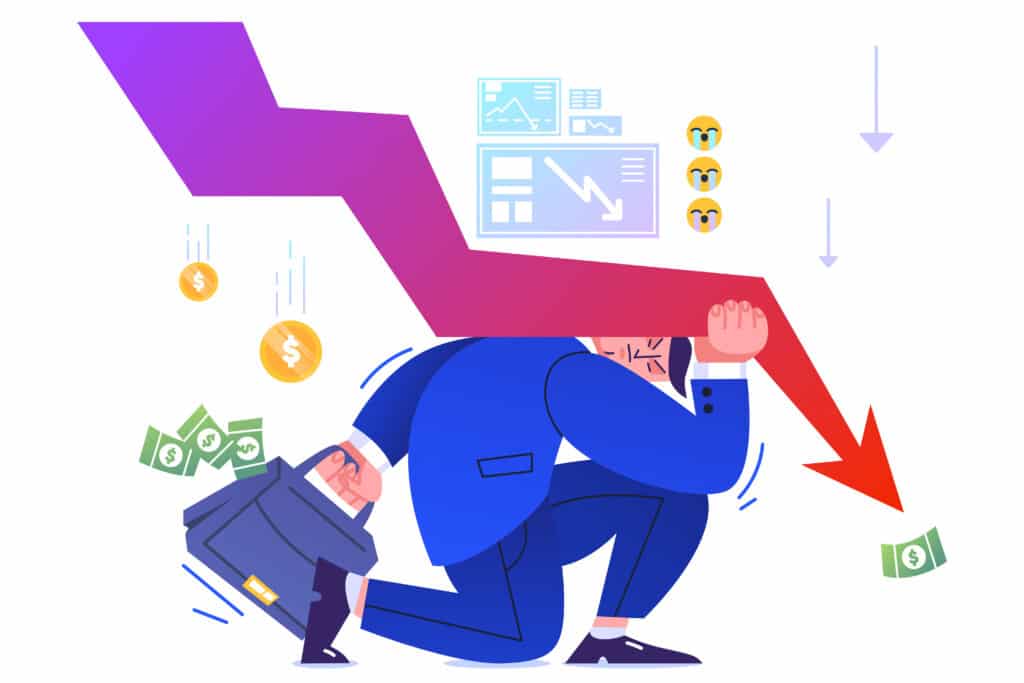Business and the overall life changes caused by the coronavirus are hard to endure. Unexpected events are experienced by many parties, including companies and business people. On top of that, the economy experiences an inflation effect, with the prices of goods and services rising from time to time. While using Accounting software can count business expenses automatically, with price increases in general, when you want to make a transaction, you can only buy goods and services in fewer quantities than before. Therefore, inflation reduces the purchasing power of money because more money is now needed to buy the same goods as before.

Table of Content:
Table of Content
How does Inflation Affect your Business?
One of the inflation effects that is negative is the reduction in the value of real money. This can affect the company in many ways because the costs for operating business activities increase while margins are getting depressed. This often requires businesses to raise prices for customers.
A high rate of inflation means that unless income increases at the same rate, the consumer’s situation will be difficult. This leads to lower levels of consumer spending and decreased sales for businesses. Because spending exceeds the production of goods and services, the supply of rupiah in an economy exceeds the amount needed for financial transactions.
When compared to large companies, small businesses often have the biggest challenge with inflation. There may be a lack of access to funds because financial institutions have often tightened loan terms over time. Then, cash flow can be affected due to increased supply costs exacerbated by clients being slow to pay their bills due to their own financial difficulties.
During times of high inflation, small businesses often face the dilemma of raising prices or absorbing higher costs. Raising prices can ensure profitability, but it can also decrease customer retention. Finding the right solution for you can be a difficult path that requires careful consideration.
Here are Tips for Handling the Inflation Effect:
Focus on efficiency and productivity
Wages and salaries rise during times of inflation. Take the time to improve the quality of business operations. Then analyze how the work can be done more efficiently. Having a clear business plan and focusing on ways to do more with less is a great way to reduce costs. If you still use a lot of manual processes for everyday tasks, such as accounting, invoicing, or marketing, think about what you can do to increase efficiency.
Start by recording all the business processes you do each week. When you can map the process step by step, it’s easier to identify areas where you can make improvements. Pay close attention to how you and your employees spend each day.
Automation
Automation is a very helpful process, and it’s not just for big businesses. There are many apps that help you automate repetitive tasks, from basic bookkeeping to client service, marketing, and more. Chances are, you may already be using some of them.
If you can automate aspects of your day-to-day work, do so. Automation reduces errors, simplifies processes, and improves customer service. As we know, customers like things that are fast, easy, and reliable. How do you know what processes to automate? If the task has few variables, is repeatable, and doesn’t require a lot of decision-making brainpower, it might be a good choice.
For example, an ERP system that can simplify profit projections can prepare companies for inflation. It also allows businesses to have overall visibility so they know what they can improve in operational management.
Cash flow is one of the main factors that businesses should be paying attention to. When a business is down, there’s a tendency to overlook certain things, such as arbitrary purchases, purchases, and collections.
Make sure you keep billing payments. Use reports to see what’s unpaid, then follow up on unpaid invoices and pending estimates to keep your business running.
Inventory stocking before the inflation effect happens
It can be difficult to plan for a rise in inflation because the warning signs are not always clear, and the inflation rate can rise from rapidly to within a few months, depending on the state of the economy. One way to stay one step ahead of inflation is to stockpile before prices from suppliers go up. But be careful not to spend your cash reserves when making a purchase. Buying things before the price increases can put you in a much better competitive position than your competitors.
Conclusion
While you can probably expect sizable profits in the coming months, inflation is something every business needs to be prepared for as it directly affects consumer spending, cost of living, and what we are willing to sacrifice. With the right strategy and the right Accounting Software, it is hoped that businesses can overcome inflation which is often unavoidable. Click here to try the free demo!





































